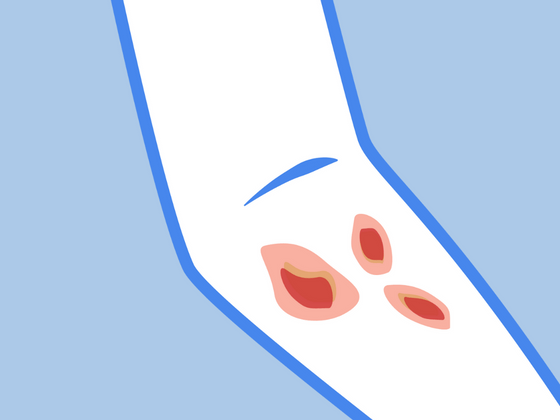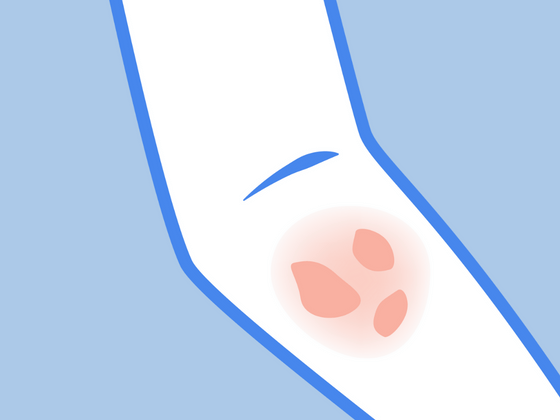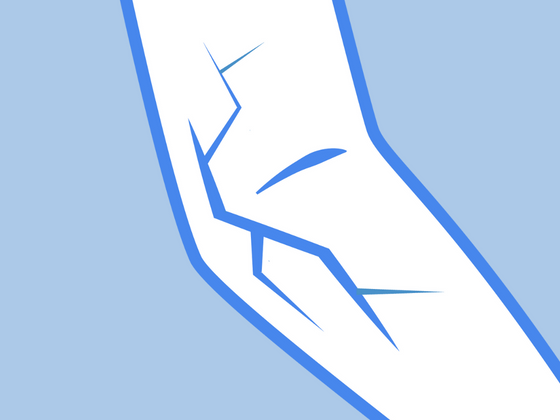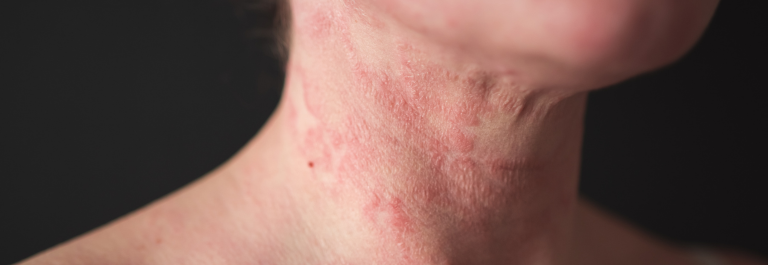Generalized Exfoliative Dermatitis, or erythroderma, is the severe inflammation of the entire skin surface. It is characterized by redness and intense scaling of the skin that begins in patches and spreads over 80% of the body. The skin then starts to peel (slough) off, leading to several complications, including increased metabolic rate and problems with temperature regulation, protein, and fluid loss.
This blog will review the symptoms, causes and natural treatment options available for exfoliative dermatitis patients.
Please remember that although we discuss in this post that we can relieve eczema, we are not medical professionals. Therefore, it is best to seek medical advice immediately if you're experiencing severe eczema symptoms.
Symptoms of Exfoliative Dermatitis
-
Crusty sores/lesions
-
Redness over 80% of the body
-
Scaly skin patches
-
Thickened skin
-
Itching
-
Fever
-
Feeling generally ill (malaise)
-
Fast heartbeat
-
Swelling of the arms and legs
-
Swollen lymph nodes
What Causes Exfoliative Dermatitis?
The most common cause of exfoliative dermatitis is a complication from a pre-existing skin condition such as atopic dermatitis, seborrheic dermatitis, psoriasis, or pityriasis rubra pilaris. It is not known why some skin conditions in people develop into erythroderma as its pathogenesis is complicated; all we know is that external factors can cause an increased number of overall epidermal cells, increased cell turnover, and decreased transit time through the epidermis. The skin condition then manifests itself as the characteristic dramatic exfoliation seen in erythrodermic patients. Exfoliative dermatitis associated with primary skin disease tends to resolve more slowly than other causes.
Another leading cause of exfoliative dermatitis is a reaction to introducing a new drug or medication. The drugs commonly associated with exfoliative dermatitis include antiepileptics (phenytoin, carbamazepine, and phenobarbital), antibiotics (sulfonamides, penicillins, and vancomycin), lithium, and allopurinol, among others. Drug-induced erythroderma tends to resolve quickly with discontinuation of the offending medication and prompt treatment.
Exfoliative dermatitis may also be a symptom or sign of systemic disease. 1% of patients with erythroderma have an underlying malignancy or cancer; the malignancy most commonly associated with erythroderma is cutaneous T-cell lymphoma. Patients who have no previous history of skin disease and who develop persistent and severe therapy-resistant erythroderma should be referred for a skin biopsy right away to rule this out.
25% of exfoliative dermatitis cases have no underlying cause. These idiopathic erythrodermic cases tend to be unpredictable, with periods of relapse and remission.
Possible Complications
Exfoliative Dermatitis can result in acute and chronic local and systemic complications:
-
Heat loss and inability to regulate body temperature can lead to hypothermia
-
Fluid loss leads to electrolyte abnormalities and dehydration
-
Red skin can lead to high-output cardiac failure
-
A secondary skin infection may occur (impetigo, cellulitis)
-
General unwellness can lead to pneumonia
-
Hypoalbuminaemia from protein loss and increased metabolic rate causes oedema
-
Longstanding erythroderma may result in pigmentary changes (brown and/or white skin patches)
How to Treat Exfoliative Dermatitis
Since erythroderma can quickly lead to serious complications, the provider will start treatment right away for this skin disorder. Treatment will depend on your symptoms, age, general health, and how severe your exfoliative dermatitis is. Treatments often involve strong doses of cortisone medicines to reduce inflammation, antibiotics for any underlying infection, and correction of fluid and electrolyte balance if necessary; however, many natural treatment options can also provide relief.
Wet wrap therapy is an easy-at-home treatment that can quickly relieve the targeted area and help maintain the skin's moisture for patients with exfoliative dermatitis. Begin with a lukewarm bath, then apply a natural moisturizer to the affected area and cover with a wet piece of clothing (we recommend the Remedywear™ Sleeve or the Remedywear™ (TENCEL + Zinc) Pants). Next, cover up with a dry layer over the top and keep it on overnight or for at least 2 hours; once the wraps are removed, reapply another layer of natural moisturizer.
Natural Moisturizers We Love
Emily Skin Soothers for Itchy Eczema
This gentle eczema cream treats rough, red, flaking, dry, and inflamed skin. It's a soothing choice for those with even the most sensitive skin, free from colorants, artificial fragrances, preservatives, and chemicals. Made from three Chinese herbs in a base of olive oil and beeswax, this natural moisturizer is perfect for soothing dry skin conditions and helping to accelerate the healing of peeling skin.
Organic Manuka Skin Soothing Cream
This non-greasy balm contains two ingredients you won't be able to find anywhere else: Active 16+ New Zealand Manuka Honey and Manuka Oil. Manuka Honey is known to have strong antibacterial and healing properties, making this cream the perfect choice if you have irritated and inflamed skin struggling to heal. This non-sticky cream does not burn or sting and works extremely well with both wet and dry wrap techniques used to treat chronic erythroderma.
Grass-Fed Tallow Balm
Tallow balm is one of the world's earliest and purest forms of skin care and is known to provide tremendous relief for eczema. This balm is available in two simple formats: unscented and tea-tree and lavender, which contains lavender essential oil, a natural antibiotic and antiseptic known to promote healing and reduce scarring.
Please read the complete ingredient list for any known irritants or allergies. We advise trying new products only on a small patch of skin at first to make sure there is no reaction. Any natural product on the market could contain an ingredient that won't agree with your skin.








